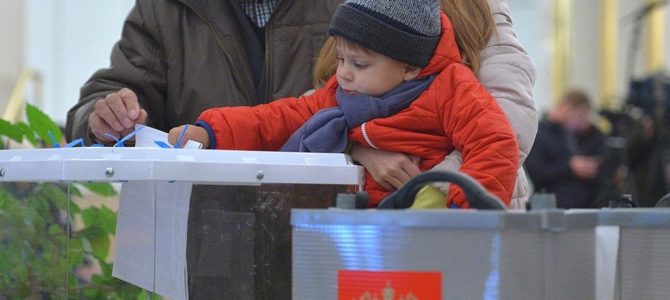
Out of the votes of babes comes…something. That’s the immediate takeaway from Kelsey Piper’s recent article in Vox arguing that “The United States should consider eradicating the voting age entirely and letting every American citizen who can successfully fill out a ballot be counted in our local, state, and national elections.”
Predictably, the column was ridiculed. For example, David French commented that this movement “would end the moment progressives watched a 12-kid homeschool family roll up to the polls.” It may be too generous to label one Vox writer a movement, but French is correct that the idea is going nowhere. Still, it raised a point that should be addressed before the article retires to the Isle of Misfit Thinkpieces.
Piper wrote that “kids shoulder the consequences of the decisions our politicians make…If you earn the right to vote alongside the burden of responsibility, we’ve burdened kids with responsibilities without extending the rights.” This problem is real, and the solution offered makes superficial sense: if adults and the politicians they elect are not representing the interests of children, allowing children to vote might protect those interests. However, there is little reason to believe this would be the result. Even Piper admits to uncertainty about what the political fallout would be.
Furthermore, giving children the vote will only exacerbate the failure of solidarity that underlies the problem. Normally, we expect family, and parents in particular, to look after the interests of children, and our default assumption is that parents are better judges of their children’s interests than the children are. Parenting is the art of raising a small, squalling savage to be a (somewhat) free and rational adult.
Thus, if we are proposing unlikely schemes to ensure that children’s interests are politically accounted for, why not give parents extra votes on behalf of their children? Piper’s scheme would often amount to that anyway, so why not make it official?
Practical arguments might be made either way, but this discussion left practicality behind from the beginning. For Piper, this is about the belief that “The most principled democratic stance is that suffrage should be universal.” This is not a call for adult stewardship on behalf of children and generations yet unborn. Rather, it seeks to give political power directly to children, on the presumption that their interests conflict with those of their parents.
Of course, there have been, and continue to be, grave failures of adult care for future generations, from environmental disasters to the enormity of our national debt. But giving children access to the ballot box will not restore responsible solidarity with the rising generation and those yet to be born. If anything, it might exacerbate generational tensions and increase the propensity of adults to vote to get theirs while the getting is good.
However, the idea is a logical endpoint of liberalism, whether of the classical variety or a modern, leftist variant. Votes for children is a self-parodying product of a worldview that elevates autonomous individualism, mediated only through the power of government, over the solidarity of family, church and community.
Letting children vote makes perverse sense in an individualistic world where they are not part of enduring natural communities, the family foremost among them. Since Locke, liberal theorists have elevated the whims of autonomous adult individuals over the permanence of family, provided that child support is paid (see Locke’s “Second Treatise,” 80-81).
Although this view requires that children be provided food, shelter, education, and so on, it does not insist upon community and solidarity between adults and children, even for parents. Liberal individualism deliberately separates the interests of parents (and especially fathers) from those of their children, rather than viewing them as concomitant.
This is most evident with regard to abortion, which nearly all of the left and much of the libertarian/classical liberal right favors. Legal abortion endorses the view that begetting and nurturing new human life is a (potentially lethal) battleground of competing interests. The womb becomes the site of a Hobbesian war of all against all.
Although Lockean liberalism may find that the child’s right to life outweighs the mother’s right to bodily autonomy, it is still a framework that sees the coming into being of children as a potential clash of individual interests, rather than the consummation and expansion of a communion of love. Those who endorse abortion poison the fundamental community of mother, father, and child, even if they do not themselves procure abortions.
Killing children in utero is the violent capstone to a culture that values adult autonomy over family solidarity and stability. The right embraced the “creative destruction” of the market, and then wondered why family values collapsed along with communities. The left cheers family dissolution and the violence of abortion, and is then outraged at the selfishness and cruelty of atomized individuals.
Safeguarding the interests of children begins by providing robust legal protection to developing human persons in the womb and protecting the primeval solidarity of the natural family. It will continue by encouraging marriage and discouraging divorce, and by favoring economic policies that enable family formation and community stability. If this interferes with adult autonomy, the sexual revolution, and the purity of free market principles, so much the worse for adult autonomy, the sexual revolution and the purity of free market principles.
Giving children the vote will not protect children’s interests or ensure responsible political stewardship of the nation they will inherit. These ends can only be accomplished if adults limit their individual autonomy in service to the common good, particularly of the family. Children don’t need to vote, they need adults (especially parents) to live responsibly and in solidarity within their family and community.








